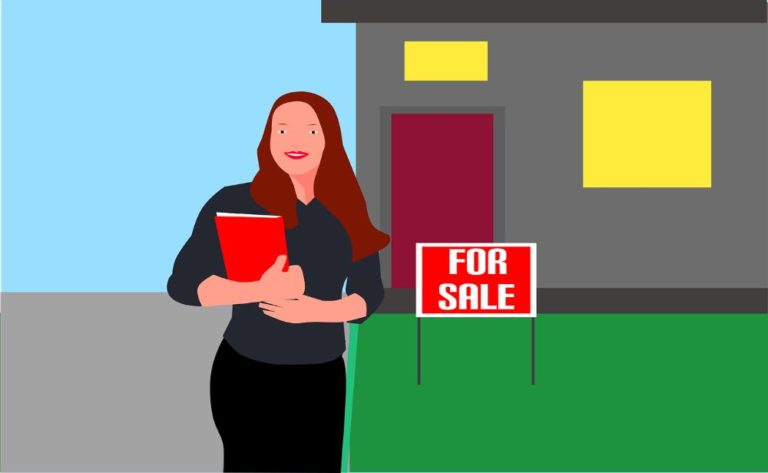When Is The Best Time to Buy a House?
There are generally three approaches to evaluating when the ideal time is to buy a home, and they are as follows:
1. The best month There is always the best month to purchase a house or the best season to buy in any real estate market; even in a down market, there is always the best month to buy a property.
2. The best year for the market and the economy Larger market trends, the status of the economy, and the employment market in your local area can all help determine whether now is a good time to buy or whether now is a bad time to buy.
3. The most convenient time for you: Regardless of the peculiarities of the market, you should only make a purchase if doing so makes sense for both your personal finances and the schedule you have set for moving.
When is the most favorable time of the year to purchase a home?
If you want a shopping experience with adequate inventory to locate a home you love while also benefiting from sellers decreasing prices before the fall, the greatest time to buy a property is in the late summer. This is the season to make your purchase. As a result, August is currently the greatest month to purchase a home.
In general, buyers in the fall and winter will have fewer options, but more flexibility in price; buyers in the spring and summer will have more options, but less negotiating power; buyers in the fall and winter will have fewer options, but more flexibility in price.
You can get a better deal if you buy in November.
Because there are more people looking for homes in the spring, the price of a home that you buy between March and May may be higher than the price of a comparable home that you buy in November or December. According to an analysis that Zillow performed on the listing and sales data from 2016, 26% of buyers paid above the list price in the month of April, while in November, only 15% of homes sold above the asking price. The period of time between the end of fall and the beginning of winter is the sweet spot for thrifty purchasers.
Keep in mind that there will be a smaller variety of properties available for purchase during the months of colder weather and around the busier holiday season because fewer people put their homes up for sale during these times.
When you buy in April, you’ll have more possibilities.
On the other hand, if you want more homes to choose from and don’t mind paying a premium, spring and early summer are good times to buy a house. The month of April has the most new listings, so this is the best time to look.
The majority of properties are added to the market during a brief period between the months of April and June. If you are looking to purchase a home in an area that experiences severe winter weather, you should know that the months of May and June typically have twice as many active listings as the months of December and January. On the other hand, this springtime pattern is much less noticeable in the markets that are more temperate.
You will find more options and cheaper prices if you shop in August.
According to the same data set, August had the largest price reduction, yet inventory levels are still strong. In 2016, price reductions occurred more frequently between the months of July and September.
In addition, August is the penultimate month of the period in which there is the greatest number of listings available across the nation. The months of June through August are when the inventory is at its highest.
Given the state of the economy, do you think this is a good time to purchase a home?
It is possible for the housing market and your decision to buy to be influenced by variables on a national, state, or even local level. The housing market can be affected on a national scale by factors such as interest rates, the state of the labour market, and the general state of the economy in the United States. Your choice to purchase a home may be influenced by factors such as buyer demand, the local job market, and the local rental market on a scale that is more local.
When interest rates on mortgages are low, purchasing a home is intrinsically more affordable, and it makes purchasing a home an option that is feasible for a greater number of individuals. Even if the rate improvement is only marginal, it is still useful to shop around for different rates. This is just one illustration:
The average rate for a 30-year fixed mortgage loan is now hovering around 3.8 percent (as of September 2019). Let’s assume you want to buy a home for $300,000 with a down payment of 20%, which comes to $60,000. Your monthly mortgage payment (without counting taxes, insurance, or any other expenditures) has the potential to fluctuate by more than $100 per month just as a result of a one-point increase in mortgage rates:
• If you had a mortgage with a principal balance and interest, your monthly payment would be $1,118 if you had an interest rate of 3.8%.
• If you were to get a mortgage with an interest rate of 4.8%, the monthly payment (principal and interest) would be $1,259 per month.
If you are also able to increase your down payment in order to avoid paying private mortgage insurance, then you will be able to take advantage of lower interest rates, which will make it possible for you to purchase more expensive properties. For instance, if the interest rate was 3.8%, the monthly payment on a home costing $337,000 with a 20% down payment of $67,400 would be $1,256. This would be $3.00 less than the monthly payment on a home costing $300,000 with an interest rate that was one point higher, at 4.8%.
Adaptations to the local market
When evaluating whether or not it is a good time to buy a home, one thing to keep in mind is that it is always a good idea to buy when home prices are heading upward, as this will allow you to begin creating equity as soon as possible. Obviously, the goal is to purchase at a low price and then sell at a high price. These are some of the factors that might indicate that now is a good time to buy, and that you can expect a good return on your investment in the long run, despite the fact that nobody can predict the market.
The region is undergoing real estate development, and new restaurants and retail establishments are sprouting up. It is also gaining in popularity.
Individual considerations that should be taken into account when scheduling a house purchase
Purchasing a property before you are financially prepared to do so or purchasing a home that is too expensive could put you at danger of defaulting on your mortgage at a later time, which could ultimately result in the loss of your home to foreclosure.
The cost of homeownership might be rather high. According to research conducted by Zillow, the annual average of the hidden costs of homeownership is $9,080. This takes into account expenses such as taxes, insurance, and utility bills; however, it does not account for landscaping and cleaning costs, which can add an additional $3,021 per year.
Investing in a home that hasn’t been maintained or updated in recent years can result in even more unanticipated expenses, particularly in the first few years of homeownership or when major home systems break down. Although new construction typically comes with a higher price tag, there is significantly less of a chance of incurring unanticipated costs because everything is brand new.
Last but not least, keep in mind that the costs associated with housing are just one component of your overall personal financial picture. It may be difficult to afford a mortgage and all of the associated costs if you are currently dealing with the payment of other large expenses, such as medical bills or the tuition for your children’s college, if you are retired or if you have an uncertain source of income.
Buyer’s mental preparedness
It is not enough to consider your financial situation when determining whether or not the time is right to purchase a home; you must also be mentally ready. Homeownership ushers in a brand-new way of living. When you buy a home instead of renting one, you take on a greater level of responsibility because you are the only person accountable for its upkeep, repairs, and improvements. This is one reason why some people choose to continue their status as tenants. When you rent a home, the landlord is the one who is responsible for major obligations like these, in addition to routine maintenance.
Possibility of location change
If there is a chance that you will be relocating to a different place within the next several years, purchasing a home might not be the best choice for you. Renting can be more expensive than buying a property if you intend to remain in the same location for more than three years. Gains in equity from home appreciation and from paying down your mortgage can frequently be sufficient to assist in recouping some of the up-front expenditures of buying a home once the homeowner has lived in the property for at least three years after making the purchase.






